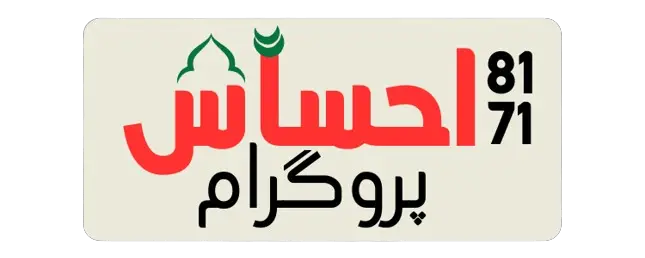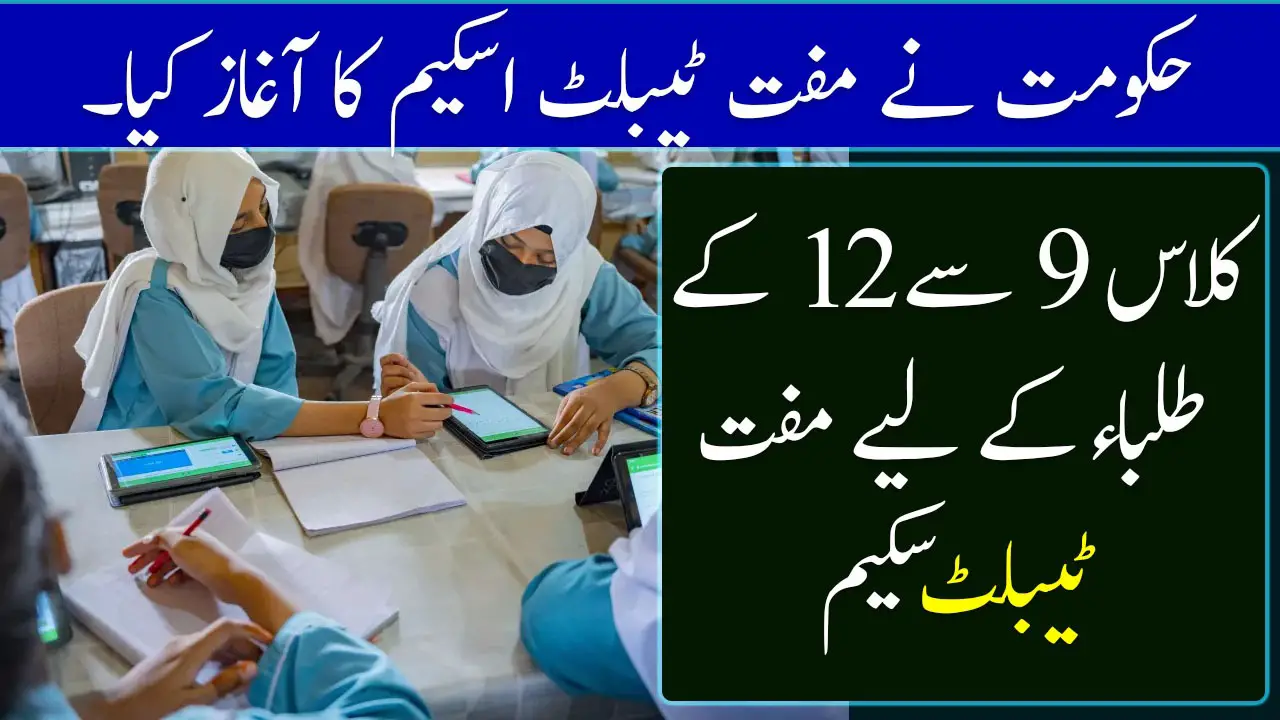In a groundbreaking move to enhance digital literacy and support education, the government has launched a Free Tablet Scheme for students from Class 9 to 12. This initiative aims to bridge the digital divide and ensure that students across the country have access to modern learning tools. The scheme is part of the government’s broader vision to promote education and digital inclusion among the youth, especially in underserved and remote areas.
ڈیجیٹل خواندگی کو بڑھانے اور معاونت تعلیم کے لیے ایک اہم اقدام میں، حکومت نے کلاس 9 سے 12 تک کے طلبہ کے لیے ایک مفت ٹیبلٹ اسکیم شروع کی ہے۔ اس اقدام کا مقصد ڈیجیٹل تقسیم کو ختم کرنا اور اس بات کو یقینی بنانا ہے کہ ملک بھر کے طلبہ کو جدید سیکھنے کے آلات تک رسائی حاصل ہو۔ یہ اسکیم نوجوانوں میں تعلیم اور ڈیجیٹل شمولیت کو فروغ دینے کے حکومت کے وسیع وژن کا حصہ ہے، خاص طور پر پسماندہ اور دور دراز علاقوں میں۔
Contents
Objectives of the Tablet Scheme for Students from Class 9 to 12
- Enhance Educational Access: The scheme aims to provide students with the necessary digital tools to access quality education, especially in areas where resources are limited.
- Promote Digital Literacy: By introducing tablets at the secondary school level, the government seeks to equip students with essential digital skills that will be vital in the 21st century.
- Support Remote Learning: The initiative is designed to facilitate remote learning, particularly for students who may not have access to traditional classrooms due to geographical or socioeconomic barriers.
- Bridge the Digital Divide: One of the primary goals is to reduce the gap between students in urban and rural areas by providing equal access to digital resources.
- Improve Educational Outcomes: By providing interactive and engaging digital content, the government aims to improve students’ learning experiences and outcomes.
Table: Free Tablet Scheme Distribution Process
| Phase | Target Group | Distribution Method | Timeline |
|---|---|---|---|
| Phase 1 | Rural and remote students | Distributed via local schools | 1st Quarter 2024 |
| Phase 2 | Low-income urban students | Collaboration with city education boards | 2nd Quarter 2024 |
| Phase 3 | Remaining eligible students | Centralized distribution centers | 3rd Quarter 2024 |
| Ongoing Support | All students | Regular updates and maintenance | Continuous |
Government Collaboration and Private Partnerships for Free Tablets Program
To ensure the success of the Free Tablet Scheme, the government has collaborated with various stakeholders, including:
- Educational Departments: Local and national education departments are actively involved in identifying eligible students and overseeing the distribution process.
- Private Tech Companies: Leading technology companies have partnered with the government to supply tablets and develop custom educational software tailored to the national curriculum.
- Non-Profit Organizations: NGOs focused on education and digital literacy are assisting in training teachers and providing on-ground support in rural and underserved areas.
- Telecommunication Providers: To facilitate internet access, telecom companies are offering subsidized data packages for students using these tablets, ensuring they can fully utilize the digital resources.

Free Tablets Program Effect on Education
The Free Tablet Scheme is expected to have a transformative impact on the education system:
- Increased Engagement: With interactive digital content, students are likely to be more engaged and motivated in their studies.
- Personalized Learning: The tablets allow for a more personalized learning experience, where students can learn at their own pace and revisit concepts as needed.
- Enhanced Teacher-Student Interaction: Teachers can use digital tools to monitor student progress more effectively, providing timely feedback and support.
- Broadened Access to Resources: Students will have access to a vast array of educational materials, including e-books, video lectures, and online courses, beyond the limitations of their physical textbooks.
Challenges and Solutions
While the Free Tablet Scheme is a commendable initiative, it does face certain challenges:
- Challenge: Infrastructure in Remote Areas
- Solution: The government is working on improving internet connectivity in remote areas. Satellite-based internet solutions and mobile hotspots are being considered to ensure students in these regions can access online resources.
- Challenge: Teacher Training and Adaptation
- Solution: Comprehensive training programs are being conducted for teachers to help them integrate digital tools into their teaching practices effectively.
- Challenge: Maintenance and Technical Support
- Solution: A dedicated support system, including helplines and service centers, is being established to assist students and schools with any technical issues that arise.
- Challenge: Digital Equity and Access
- Solution: The government is providing subsidized internet plans and working with NGOs to distribute tablets to the most disadvantaged students, ensuring that no student is left behind.
FAQs
Who is eligible for the Free Tablet Scheme?
Students from Class 9 to 12 enrolled in government schools are eligible, with priority given to those from low-income families and rural areas.
What kind of content will the tablets have?
The tablets will come with pre-installed educational apps, e-books, and access to online learning platforms.
How will the tablets be distributed?
The distribution will be carried out in phases, starting with students in rural and remote areas.
Will teachers receive training for this scheme?
Yes, the government will provide training for teachers to help them effectively use the tablets in their teaching.
What is the main goal of the Free Tablet Scheme?
The main goal is to enhance digital literacy and provide equal learning opportunities to students across the country.
Conclusion
The launch of the Free Tablet Scheme marks a significant step towards achieving educational equity in the country. By empowering students with digital tools, the government is not only improving access to education but also preparing the next generation for a future where digital skills are paramount. This initiative will undoubtedly play a crucial role in shaping a more inclusive and technologically advanced society, while also addressing the challenges that come with such a large-scale implementation. With the right support and continued collaboration between the government, private sector, and non-profits, the Free Tablet Scheme has the potential to revolutionize education and pave the way for a brighter, more connected future for students across the nation.

